Now Foods Certified Spirulina Powder
Benefit of Spirulina
- Rich in a variety of nutrients, it can be called a natural multivitamin.
- Aid in weight loss.
- Beneficial for male infertility.
- Beneficial for allergic rhinitis.
- Good for fatigue.
- Beneficial for chronic hepatitis C.
- Beneficial for Thalassemia.
- Beneficial for NAFLD
- Improve nutritional status.
- Increase detoxification.
- Beneficial for hyperlipidemia.
Description
Spirulina, also known as cyanobacteria or blue-green algae, was reported to have been used as food during the Aztec civilization in the 16th century. In the past 20 to 30 years, millions of people around the world have taken spirulina as a safe food supplement, and it is considered one of the most nutritious foods in the 21st century. Therefore, it has been recognized by the United States and European Space Agency (NASA) and (ESA) designated as essential for astronaut missions. Spirulina refers to a large class of photosynthetic filamentous primitive unicellular fungi in the phylum Cyanobacteria. Its name comes from the helical form of its filaments.
Arthrospira maxima, Spirulina platensis and Spirulina fusiformis are the most common and well-studied spirals. Algal species In addition to its high content of protein (70%), it also contains beta-carotene, phycocyanin, trace elements (potassium, sodium, calcium, magnesium, iron, zinc), vitamin B12, vitamin e, unsaturated fatty acids, especially is gamma-linolenic acid and phenolic compounds. It is generally believed that spirulina has anti-genotoxic, anti-cancer, immune-stimulating, anti-inflammatory, anti-hepatotoxic, anti-diabetic and anti-hypertensive benefits, so it is widely used in hypertension, inflammatory diseases, diabetes, non-alcoholic fatty liver disease , nutritional supplements for malnutrition, anemia, allergic rhinitis, cancer and other diseases
- Rich in a variety of nutrients, it can be called a natural multivitamin
Spirulina is arguably one of the most nutrient-dense foods on the planet, rich in vitamins, minerals (calcium, magnesium, zinc, copper, manganese, etc.), essential fatty acid GLA (or gamma linseed oil) acid), and more particularly, the protein content is as high as 60% to 70%, which is higher than that of meat and fish, so it is very suitable as a protein source for vegetarians. In addition, cyanobacteria (Spirulina) also contains phytochemicals, including chlorophyll, phycocyanin, astaxanthin, lutein, β-carotene, which are natural antioxidants produced by plants, which have the functions of enhancing immunity, antibacterial, Antiviral and other effects. Moreover, due to its extremely thin cell wall, high water solubility and easy digestion (absorption rate can reach 95%), it is the best choice for supplementing nutrition and regulating immunity. - Aid in weight loss
Obesity is a public health problem of worldwide concern. It can be defined as a state in which abnormal or excessive accumulation of adipose tissue impairs health. Medical problems associated with it include: type 2 diabetes, high blood pressure, coronary artery disease, Multiple cancers and cognitive impairment. According to the World Health Organization, the number of overweight people aged 15 and over will reach 2.3 billion, and more than 700 million will be obese. A systematic literature review and meta-analysis (including 5 randomized controlled clinical trials with a total of 278 participants) found that spirulina supplementation was associated with lower body weight, body fat percentage and waist circumference. Spirulina supplementation has positive effects on weight loss. - Beneficial for male infertility
Infertility evaluation usually begins after 1 year of trying to conceive, but in couples with older women (> 35 years), the majority of couples who never become pregnant begin diagnostic evaluation after 6 months, and about 15% of married couples affected. Relevant tests include semen analysis, ovulation assessment, hysterosalpingography, and if needed, ovarian reserve and laparoscopy. Half of these cases are caused by male factors, and about 60% to 75% of male infertility cases are idiopathic. Oral spirulina has positive effects on male infertility. - Beneficial for allergic rhinitis
Allergic rhinitis is a symptomatic rhinitis caused by an inflammatory reaction of the nasal mucosa, with symptoms such as nasal congestion, runny nose, sneezing, and nasal itching. Other symptoms include throat clearing, headache, facial pain, ear pain, throat and palate itching, snoring. About 20% to 30% of adults and up to 40% of children are affected by the disease, causing sleep disturbance, fatigue, depression and cognitive impairment, affecting quality of life and work productivity. A randomized, double-blind, placebo-controlled study (6 months in 150 patients with a history of allergic rhinitis) showed that taking spirulina compared with placebo significantly improved symptoms and signs of allergic rhinitis, including: runny nose, sneezing, stuffy nose, and itching. - Good for fatigue
Fatigue is a subjective symptom manifested by physical discomfort, impaired aversive activity, or objective manifestations, or is also defined as a symptom that indicates a physical or psychiatric disorder (eg, multiple sclerosis, depression) or the result of treatment for the disorder (eg chemotherapy). Surveys report that between 5% and 20% of the general population suffer from this persistent and headache-inducing fatigue. Fatigue is twice as high in women as in men, but not much related to age or occupation. A randomized, double-blind, placebo-controlled study (8 weeks in 18 healthy men) showed that oral spirulina improved mental and physical fatigue. Spirulina can help to fight fatigue. - Beneficial for chronic hepatitis C
Hepatitis C virus accounts for about 15% to 20% of acute hepatitis cases, and after acute infection, about 50% to 80% of hepatitis C patients will develop chronic infection. People with chronic hepatitis C are at high risk for life-threatening complications, including 20% of cirrhosis and a 4% to 5% annual incidence of hepatocellular carcinoma. Epidemiological studies have also shown that hepatitis C is associated with a number of extrahepatic manifestations, including insulin resistance, type 2 diabetes mellitus, glomerular disease, and oral manifestations. A randomized, double-blind, comparative study (6 months in 66 patients with chronic HCV infection) showed that spirulina improved viral load, liver function, and health-related quality of life compared to silymarin and sexual function. - Beneficial for Thalassemia
Beta-thalassemias are a group of inherited blood disorders characterized by abnormal hemoglobin synthesis. There are three main forms: severe, intermediate and mild. In contrast, thalassemia major patients usually develop severe anemia within two years of birth and require regular blood transfusions. Routine blood transfusion therapy may lead to complications related to iron overload, including developmental delay and failure or delay in sexual maturation. Severe may cause abnormalities of the heart (dilated cardiomyopathy or rare arrhythmias), liver (fibrosis and cirrhosis), and endocrine glands (diabetes, hypogonadism and parathyroid, thyroid, pituitary insufficiency). An interventional study (3 months in 60 children with thalassemia major) showed that taking spirulina helped improve hemoglobin levels and Left ventricle global longitudinal strain and reduce the number of blood transfusions. In subjects with thalassemia major, spirulina supplementation may be beneficial in reducing frequency of blood transfusions and preventing heart damage. - Beneficial for NAFLD
Non-alcoholic fatty liver disease, the most common chronic liver disease, with a natural history including non-alcoholic steatohepatitis and cirrhosis, will be the target of liver transplantation by 2030 main reason. A sedentary lifestyle and the spread of poor eating habits are the main reasons for the increased prevalence, which is 50% to 75% in type 2 diabetes and 80% to 90% in obese patients. In addition, patients have a high risk of cardiovascular disease (left ventricular dysfunction, atherosclerotic cardiovascular disease, cardiac conduction system abnormalities, and ischemic stroke), which are the leading causes of death in patients. An interventional study (6 months in 14 patients with nonalcoholic fatty liver disease) indicated that oral administration of spirulina helped reduce aspartate aminotransferase (AST), alanine aminotransferase (ALT), gamma-glutamyl Ammonia transpeptidase (GGT), low-density lipoprotein cholesterol, total cholesterol, ratio of total cholesterol to high-density lipoprotein cholesterol, insulin resistance, body mass index. Spirulina may have positive effects on non-alcoholic fatty liver disease. - Improve nutritional status
Nutritional status is an important factor in maintaining the health of the elderly and an important determinant in the aging process. Nutritional deficiencies often occur in the elderly, and also indirectly lead to decreased physical status, such as: impaired muscle function, bone loss, immune dysfunction, anemia, cognitive decline, poor wound healing, delayed surgical recovery and increased mortality. In addition, malnutrition is a major cause of stunting and death in children under the age of 5 globally, especially in developing countries, where an estimated 140 million young children are undernourished. A prospective study (30 days, 50 malnourished African children) pointed out that spirulina can significantly improve the nutritional status of subjects (including hemoglobin, anemia and total protein and other indicators) - Increase detoxification
Although the progress of science and technology brings convenience of material life, it also produces many industrial wastes and toxic substances. These environmental pollutants have become the biggest threat to human health. From common diarrhea and pneumonia, to cardiovascular disease and cancer, these harmful substances may be directly or indirectly triggered by these substances. A systematic review pointed out that spirulina can help organisms to offset the effects of toxic substances (arsenic, carbon tetrachloride, hexachlorocyclohexane), and has detoxification and antitoxic effects. Spirulina can act as an auxiliary natural antidote against some toxins. - Beneficial for hyperlipidemia
Hyperlipidemia is an excessive amount of fat in the blood, commonly including triglycerides or excessive fat, which is easy to accumulate in the blood vessel wall for a long time, causing the blood vessels to narrow, lose elasticity, and even gradually harden and block, causing myocardial infarction, cerebral apoplexy, etc. serious illness. A systematic review and meta-analysis (7 studies with 552 participants) indicated that spirulina reduced total cholesterol, LDL cholesterol, triglycerides and increased high density of lipoprotein cholesterol.
Possible Side Effects of Spirulina
Spirulina is eaten by humans. According to the legend, it can be traced back to the Egyptian era thousands of years ago. If it is in a non-polluting state, it can be regarded as a very safe natural food. Adverse reactions or minor side effects have been reported: nausea, vomiting, diarrhea, abdominal discomfort, fatigue, headache, dizziness, edema, muscle pain, flushing and sweating. Since spirulina is easily affected by the environment during its growth, if the cultivation water is polluted, it may produce products full of bacteria and harmful substances (microcystins, toxic metals and harmful bacteria), which may cause liver damage and stomach pain if not eaten enough. , nausea, vomiting, weakness, thirst, rapid heartbeat, shock, and death, so buy from a reputable, third-party-tested label. Now Foods is GMP Manufacturing. The brand’s manufacturing practices are certified by UL Solutions.
NOW was one of the first dietary supplement manufacturers in 2000 to seek Good Manufacturing Practices (GMP) certification. Now Foods awarded an ‘A’ rating by the National Products Association (NPA) after an intense audit process. They undergo re-certification each year, consistently maintaining an ‘A’ rating. The brand’s manufacturing practices are certified by UL Solutions.
Spirulina Available Sizes
| Size | Servings | UPC | |
|---|---|---|---|
| 4 oz. | about 34 | 733739026903 | |
| 1 lb. | about 138 | 733739027146 |
Suggested Usage
Take 1 level teaspoon daily, mixed in water, fruit or vegetable juice.
Store in a cool, dry place after opening.
Nutrition Facts
| Serving Size: | 1 level tsp (3.3g) |
|---|---|
| Servings Per Container: | About 34 |
| Description | Amount per Serving | % Daily Value |
|---|---|---|
| Calories | 15 | |
| Total Fat | 0g | 0% |
| Sodium | 35mg | 2% |
| Total Carbohydrate | 1g | <1% |
| Protein | 2g | 4% |
| Calcium | 5mg | 0% |
| Iron | 1.6mg | 8% |
| Potassium | 56mg | 2% |
| Not a significant source of saturated fat, trans fat, cholesterol, dietary fiber, total sugars, added sugars, and vitamin D. | ||
Ingredients: Organic Spirulina Powder.
Not manufactured with yeast, wheat, gluten, soy, milk, egg, fish, shellfish or tree nut ingredients. Produced in a GMP facility that processes other ingredients containing these allergens.
Certified Organic by QAI.
Natural color variation may occur in this product.
This product is sold by weight not volume.
Store in a cool, dry place after opening.
You must be logged in to post a review.

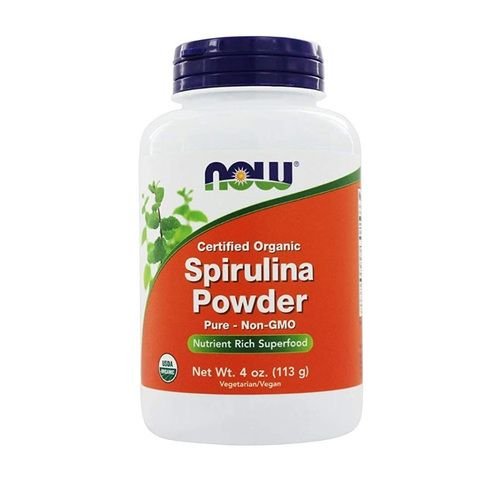
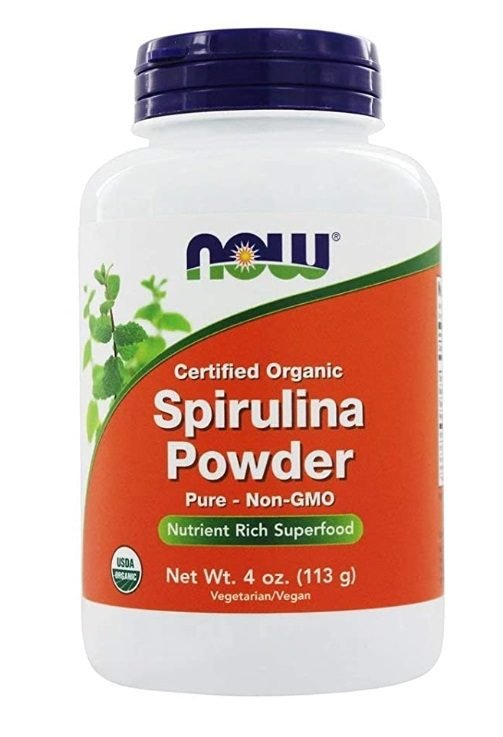
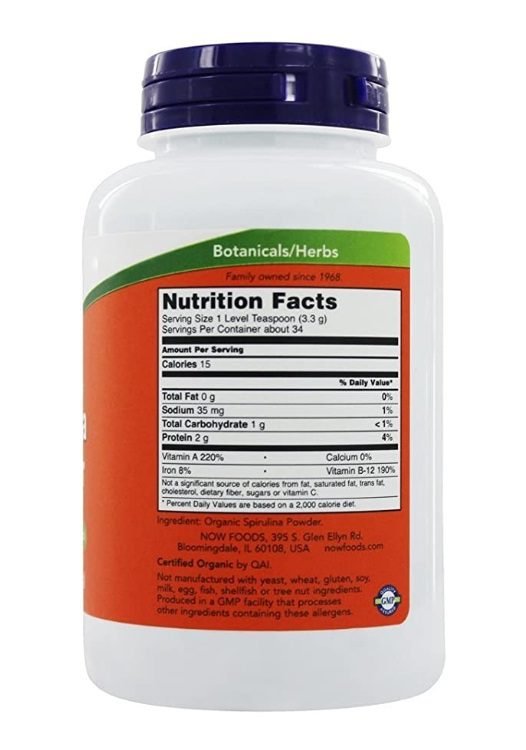

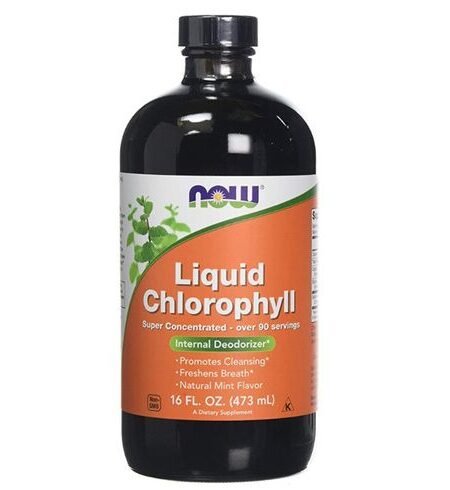

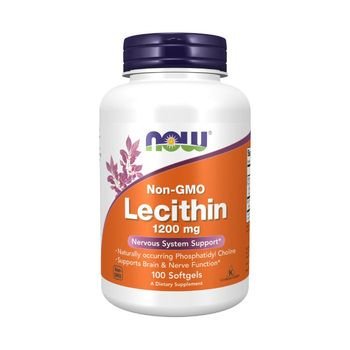
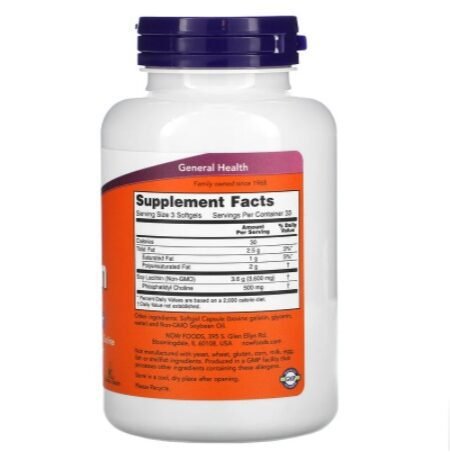
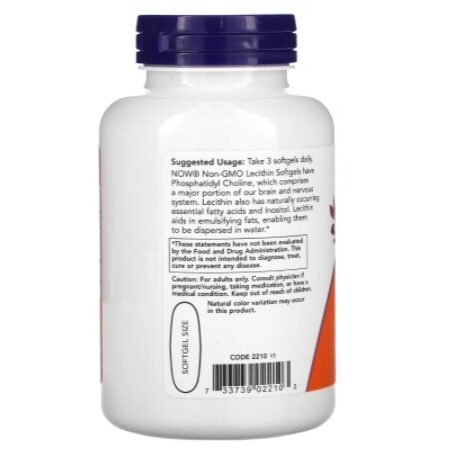
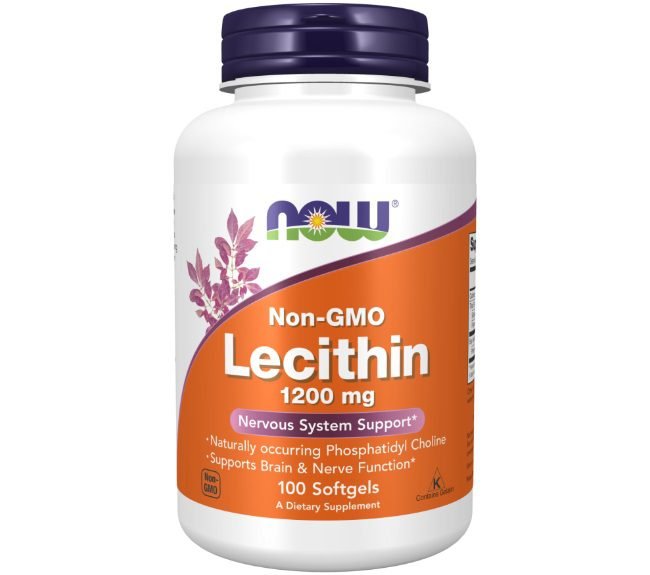
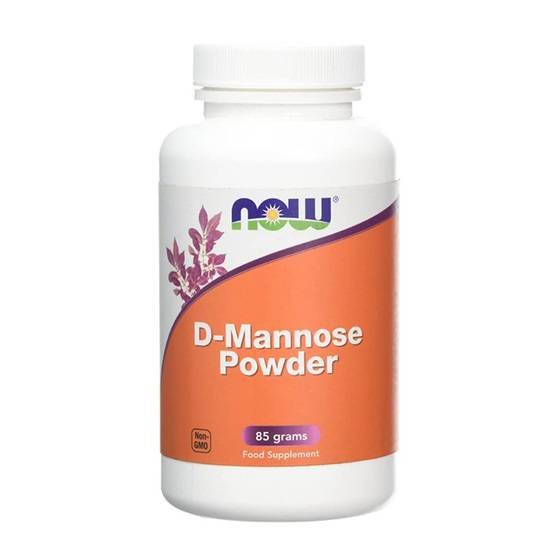
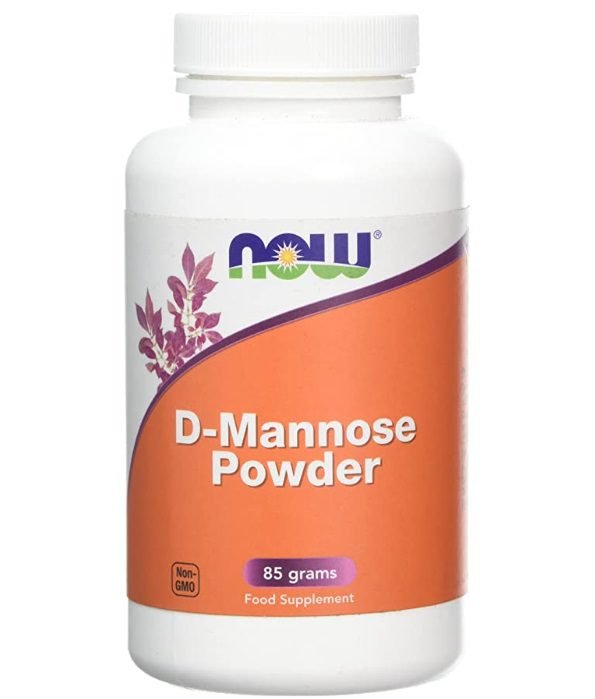

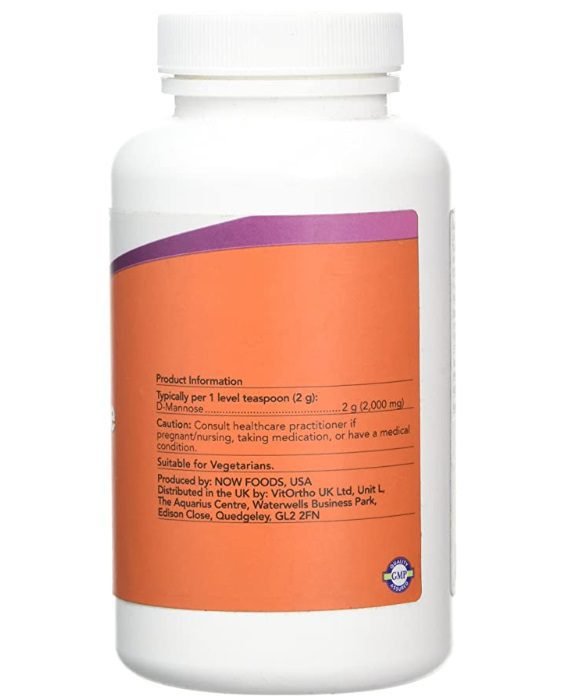
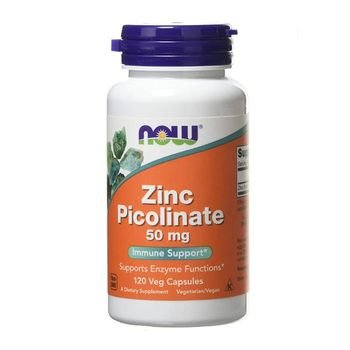
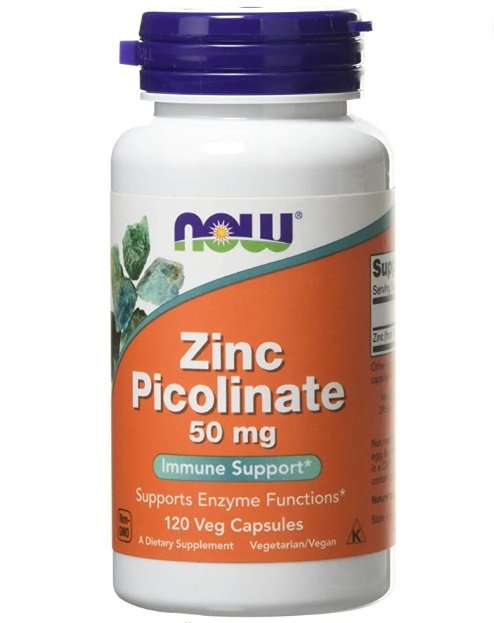
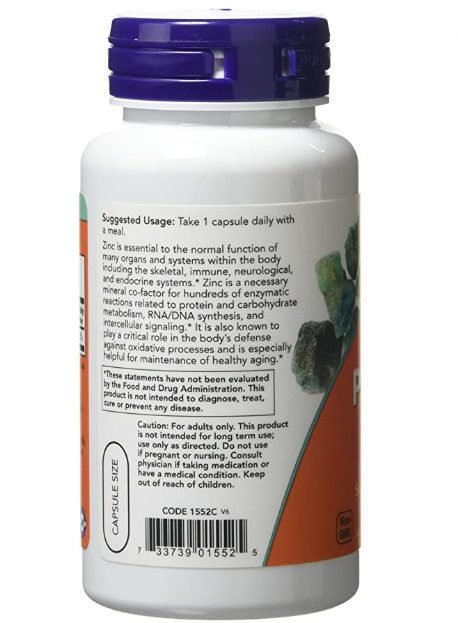
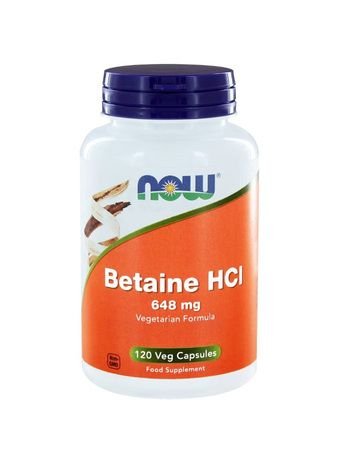
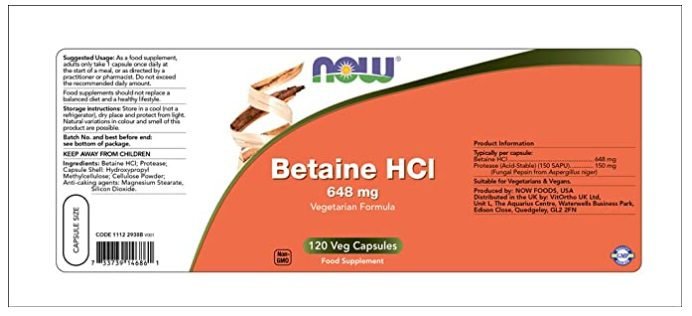
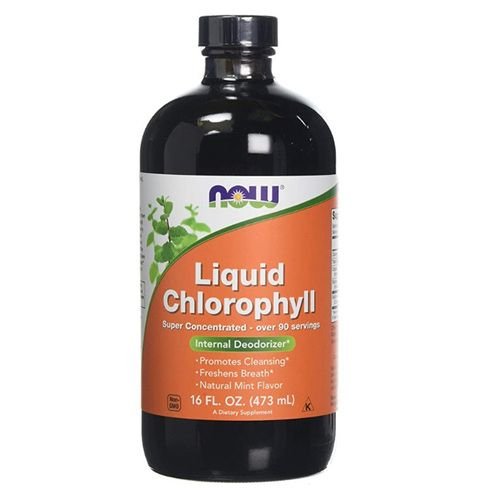






Reviews
There are no reviews yet.